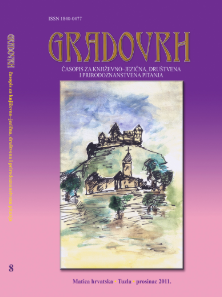Središnja pojmovnost modela multikulturalnog društva
Central Model Conceptuality Multicultural Society
Author(s): Srđan VukadinovićSubject(s): Politics / Political Sciences, Philosophy, Sociology, Recent History (1900 till today), Cultural Anthropology / Ethnology, Culture and social structure
Published by: Matica Hrvatska Tuzla
Keywords: unity; diversity; modern society; review of heterogeneous structure;
Summary/Abstract: Two opposing concepts, or concepts of resonance such as universalism and belonging in the modern word receive special meaning in the unity of diversity. Although the u universality and belonging to the philosophical point of two completely opposite notions thea are in terms of modern political thought assumes as central concepts. Universalism refers to the general idea of humanity by which people are naturally equal, and share the same values and rights. Belonging refers to the existence of different cultures, groups or communities for which the special values and form differences in methods and quality of life. In modern society universalism is opposed to hierarchy and diversity works against it. You can not belong to a hierarchical superior or a subordinate group just because a different identity for some properties. Modern societies to 90 of XX century is characterized by a model of multiculturalism, while the last decade of the second and the first constitution of the third millennium period of interculturalism as a model for the existence of differences by mutual interactivity. Globalization and modernization on the world stage is increasingly performed for diversity and confronting them. Understanding and interpreting the diversity of individuals, groups, societies and the world articulle the multiple meanings and symbols. In a multicultural society that is deprived of represented a diversity of interaction. Transitional societies are ambient in which universalism and examines the relation of belonging in a spirit of unity prevailing understanding of differences and intercultural communication in the modern world.
Journal: Gradovrh - časopis za književno-jezična, društvena i prirodnoznanstvena pitanja
- Issue Year: 2011
- Issue No: 8
- Page Range: 337-342
- Page Count: 6
- Language: Bosnian

